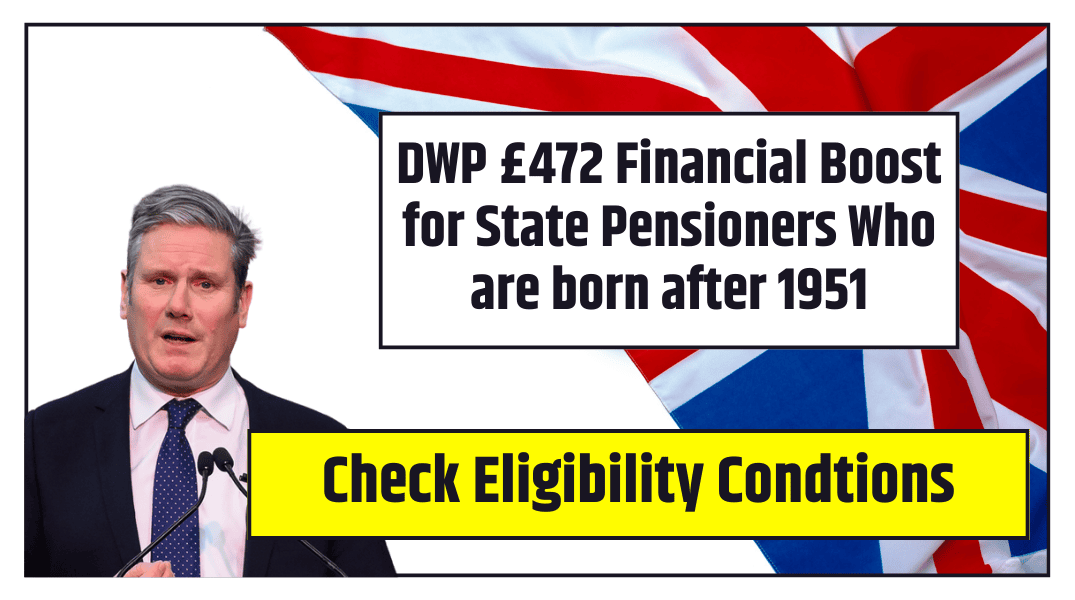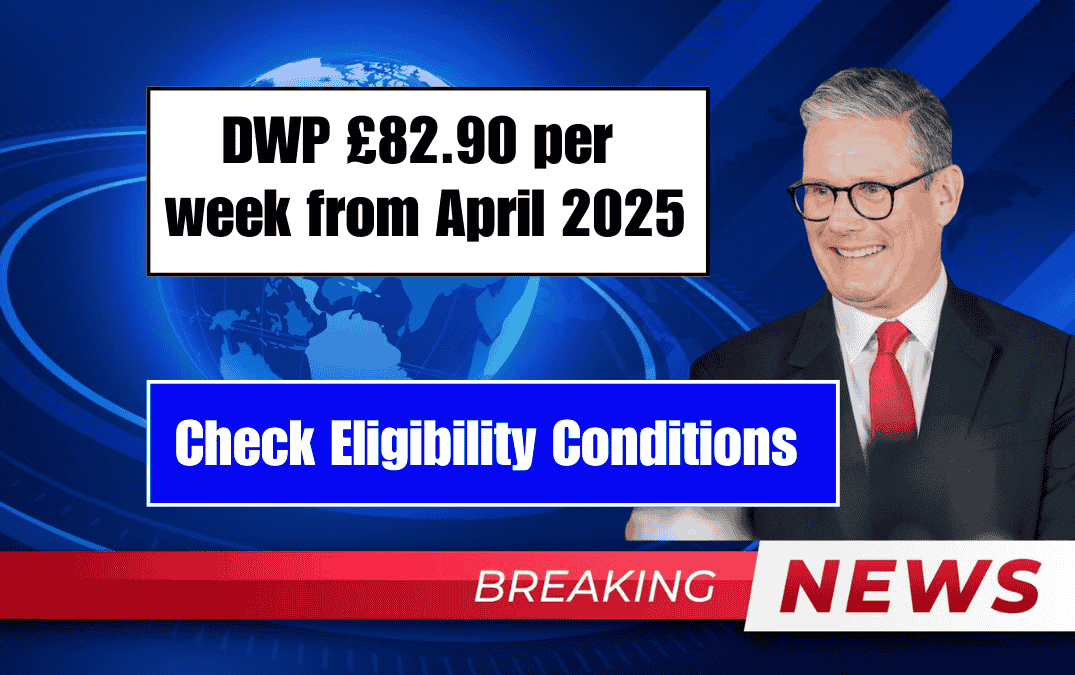DWP £472 Financial Boost for State Pensioners Who are born after 1951: From April 7, 2025, millions of older people in the UK will see an increase in their State Pension payments, thanks to the triple lock guarantee. This year’s rise is based on wage growth, which stood at 4.1%, and it could mean up to £472 more annually for some pensioners.
The exact increase you receive depends on which type of State Pension you’re claiming and how many qualifying National Insurance years you have. Let’s break it down clearly, so you know exactly what to expect.
What Is the Triple Lock System?
The triple lock ensures the State Pension increases every April based on whichever is higher of:
- Inflation (measured in September)
- Average wage growth (from May to July)
- 2.5% minimum
- For 2025, wage growth was 4.1%, which means all State Pension payments will go up by this percentage.
New State Pension: What’s the New Amount?
If you’re on the new State Pension, which applies to:
- Men born on or after 6 April 1951
- Women born on or after 6 April 1953
- Then you’ll receive:
- Old amount: £221.20 per week (£11,502/year)
- New amount: £230.30 per week (£11,975/year)
- This is a yearly increase of £473.
Basic (Old) State Pension: What’s the New Rate?
If you’re on the basic State Pension, which applies to:
- Men born before 6 April 1951
- Women born before 6 April 1953
- Then your payment will increase to:
- Old amount: £169.50 per week (£8,814/year)
- New amount: £176.45 per week (£9,175/year)
- That’s an increase of £361 annually.
How Many National Insurance Years Do You Need?
To get the full new State Pension, most people need:
- 35 qualifying years on their National Insurance record
- At least 10 years to get any amount
- For the basic State Pension, the qualifying years vary:
- For men:
- Born between 1945–1951: Need 30 years
- Born before 1945: Need 44 years for full, 1 year for minimum
- For women:
- Born between 1950–1953: Need 30 years
- Born before 1950: Need 39 years for full, 10 years for minimum
State Pension and Income Tax: A New Problem?
The full new State Pension is now getting close to the personal tax-free allowance (£12,570 per year). With a forecasted 4.6% rise in 2026, pensioners could soon start paying income tax on their State Pension.
Jon Greer, head of retirement policy at Quilter, explained that the tax threshold freeze until 2028 is creating a “fiscal drag,” where pensioners may end up paying back part of their pension in taxes—something that was never intended when the triple lock was created.
Is the Triple Lock at Risk?
There’s increasing talk of reforming the triple lock to make it more sustainable. One proposal is:
- Link increases to wages (rather than inflation or 2.5%)
- Use CPI inflation only when it’s higher than wage growth
- This could create a more balanced and predictable system that reflects the wider economy.
The upcoming 4.1% increase in State Pension from April 7, 2025, will bring welcome financial relief for many pensioners, with some gaining nearly £500 extra a year. But it also raises questions about future taxation and whether the triple lock will continue in its current form.
With payments rising and the tax-free threshold frozen, now is a good time to check your National Insurance record, see if you qualify for full payments, and stay updated with future changes.
FAQ’s
How much is the new State Pension from April 2025?
The full new State Pension will increase to £230.30 per week, or £11,975 annually.
What is the full basic State Pension in 2025?
The full basic State Pension will rise to £176.45 per week, or £9,175 per year.
What is the triple lock on State Pension?
It guarantees pension increases based on the highest of wage growth, inflation, or 2.5%. In 2025, it is based on 4.1% wage growth.
Do I need to pay tax on my State Pension?
You may have to pay tax if your total income exceeds the personal allowance of £12,570. The full new State Pension is nearing this limit.
How many National Insurance years are needed for a full pension?
You typically need 35 qualifying years for the new State Pension, and 30–44 years for the basic State Pension depending on your date of birth.









